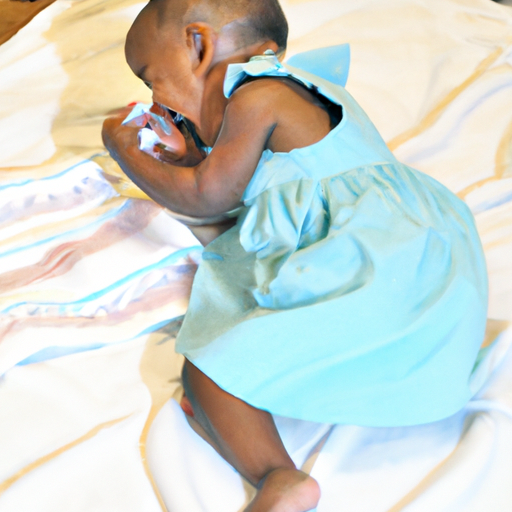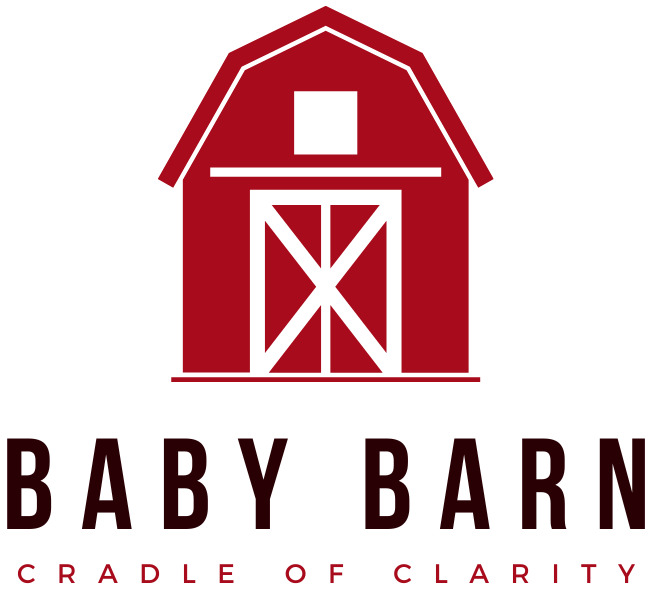So, you’ve finally settled into a somewhat manageable sleep routine with your baby, and then suddenly, everything goes out the window. Your little one starts waking up more frequently during the night and refuses to nap during the day. What could possibly be going on? Well, my friend, you may be experiencing what experts call “baby sleep regressions.” In this article, we’ll dive into what these regressions are, why they happen, and some tips to help you navigate through them.
If you’re a new parent or have experienced baby sleep regressions before, you know just how challenging they can be. They can leave you feeling exhausted, frustrated, and wondering if you’ll ever get a full night’s sleep again. But fear not! In this article, we’ll delve deeper into the different types of baby sleep regressions, such as the four-month sleep regression and the infamous sleep regression that occurs around eight to ten months. We’ll uncover the reasons behind these regressions, including developmental milestones, separation anxiety, and teething. And most importantly, we’ll provide you with strategies and tips to help you survive these challenging times and get your little one back on track to a good night’s sleep. So, stick around and get ready for some valuable insights into the world of baby sleep regressions.

Definition and overview
Baby sleep regressions refer to periods of interrupted or disrupted sleep that occur in a child’s development. During these regressions, babies who previously slept well may suddenly experience difficulty falling asleep, waking frequently at night, or taking shorter naps during the day. These regressions can be frustrating for both parents and babies, as they may disrupt established sleep routines and leave everyone feeling exhausted.
Causes of baby sleep regressions
There are several factors that can contribute to baby sleep regressions. The most common causes include:
- Developmental Milestones: As babies grow and reach new developmental milestones, such as rolling over, sitting up, or teething, they may experience temporary disruptions in their sleep patterns. These milestones can cause discomfort or excitement, making it harder for babies to settle down and fall asleep.
- Separation Anxiety: Around the age of 6-8 months, babies start to develop a stronger attachment to their primary caregivers. This newfound attachment often leads to separation anxiety, causing babies to wake up more frequently during the night and have difficulty falling back asleep without parental presence.
- Changes in Routine: Any changes in a baby’s routine, such as starting daycare, transitioning to a new crib or bed, or traveling, can disrupt their sleep patterns. Even minor changes can cause temporary sleep disturbances as babies adjust to the new environment or routine.
- Illness or Teething: When babies are unwell or teething, they may experience discomfort, pain, or other physical symptoms that make it harder for them to sleep soundly. As a result, they may wake up frequently seeking comfort or relief.
Duration of baby sleep regressions
The duration of baby sleep regressions can vary from a few weeks to several months. Most regressions tend to last around two to four weeks, with some being shorter or longer depending on the individual child. It’s important to note that while sleep regressions can be challenging, they are usually temporary and babies eventually return to their normal sleep patterns.
Signs and symptoms of baby sleep regressions
During a baby sleep regression, there are several signs and symptoms that parents may notice. These can include:
Increased night waking
One of the most common signs of a sleep regression is increased night waking. Babies who previously slept for longer stretches may start waking up more frequently during the night, requiring parental attention or assistance to fall back asleep.
Difficulty settling to sleep
Baby sleep regressions can also make it harder for babies to settle down and fall asleep initially. They may become more fussy or restless, requiring extra soothing or comfort before they can drift off to sleep.
Shortened naps
Nap times may also be affected during a sleep regression. Babies who used to take longer naps may suddenly start taking shorter, more fragmented naps. This can lead to increased fatigue throughout the day and further disrupt nighttime sleep.
Restless sleep
Babies experiencing a sleep regression may exhibit more restless sleep patterns. They may toss and turn more, have more active sleep (REM sleep), or startle themselves awake more frequently. These restless sleep patterns can result in more frequent night waking and a less restful sleep overall.

Common age periods for baby sleep regressions
While every baby is different, there are a few common age periods when sleep regressions are more likely to occur. These include:
4-month sleep regression
The 4-month sleep regression is one of the most well-known and challenging regressions. Around this age, babies experience significant changes in their sleep cycles and their sleep patterns become more adult-like. They may start waking up more frequently during the night and have difficulty settling back to sleep without assistance.
8-10 month sleep regression
The 8-10 month sleep regression often coincides with major developmental milestones such as crawling, pulling up, and maybe even starting to walk. These milestones can cause excitement and increased mobility, leading to more frequent night waking and difficulty settling back to sleep.
18-month sleep regression
The 18-month sleep regression can be a particularly challenging time for both toddlers and parents. Around this age, toddlers may experience separation anxiety, language development leaps, and increased independence. These factors can disrupt sleep and result in more frequent night waking or difficulty falling asleep.
Impact on parental sleep and well-being
Sleep regressions can have a significant impact on parental sleep and overall well-being. The effects can include:
Effect of baby sleep regressions on parental sleep
Parents often find themselves sleep-deprived during sleep regressions as their babies’ sleep patterns change. The increased night waking and difficulty settling their babies to sleep can lead to fragmented and reduced sleep for parents as well.
Challenges faced by parents during sleep regressions
The challenges faced by parents during sleep regressions extend beyond lack of sleep. The stress and frustration of trying to soothe a restless baby and the persistent exhaustion can take a toll on parents’ mental and emotional well-being. It can lead to increased feelings of frustration, irritability, and decreased ability to cope with daily tasks.
Recommended coping strategies
To cope with the challenges of baby sleep regressions, it’s essential for parents to implement strategies that prioritize self-care and support healthy sleep habits for both themselves and their babies. Some recommended coping strategies include:
- Accepting that regressions are temporary: Understanding that sleep regressions are normal phases of development can help parents maintain perspective and reduce anxiety. Reminding yourself that this is a temporary phase can make it more bearable.
- Seeking support: Reach out to friends, family, or other parents who have gone through similar experiences. Sharing your frustrations, seeking advice, or simply venting can provide emotional support and reassurance that you’re not alone.
- Creating a support system at home: If possible, share nighttime responsibilities with a partner or another trusted caregiver. Taking turns to handle night wakings and soothing can help both parents get more restful sleep.
- Prioritizing self-care: Take care of your own physical and mental well-being. Ensure you are getting enough rest, eating healthy, and engaging in activities that help you relax and recharge. Self-care is crucial for being able to support your baby through this challenging period.
Tips for navigating baby sleep regressions
While sleep regressions can be challenging, there are several strategies that can help navigate through them more smoothly. These include:
Establishing a consistent bedtime routine
Implementing a consistent bedtime routine can signal to your baby that it’s time to wind down and prepare for sleep. A routine might include activities such as a warm bath, reading a bedtime story, or gentle singing. Consistency and predictability are key for helping your baby transition to sleep more easily.
Creating a conducive sleep environment
Ensuring that your baby’s sleep environment is cool, dark, and quiet can help promote better sleep. Use room-darkening shades or curtains to block out excess light, maintain a comfortable room temperature, and use white noise machines or fans to create a soothing background noise.
Implementing sleep training methods
Age-appropriate sleep training methods can be helpful during sleep regressions. Techniques such as gradual extinction or controlled comforting can assist babies in learning to self-settle and fall back asleep independently. It’s essential to choose a method that aligns with your parenting style and feel comfortable implementing.
Ensuring proper nutrition and daytime routine
Ensuring that your baby is well-nourished during the day and has a consistent daytime routine can support better sleep at night. Offering balanced meals and snacks, providing appropriate daytime stimulation and activities, and establishing regular nap times can help regulate your baby’s sleep-wake cycle.
Distinguishing sleep regressions from other sleep disturbances
It’s important to distinguish sleep regressions from other sleep disturbances or sleep disorders that may require professional intervention. Some key differences include:
Difference between sleep regressions and sleep disorders
Sleep regressions are temporary disruptions in sleep patterns that occur due to developmental changes. They are usually self-resolving and do not require medical intervention. On the other hand, sleep disorders such as sleep apnea, night terrors, or insomnia are persistent and more severe sleep disturbances that may require medical evaluation and treatment.
Consulting a pediatrician for accurate diagnosis
If you suspect that your baby’s sleep disturbances are more than just a sleep regression, it’s important to consult with your pediatrician. They can help identify any underlying issues and provide guidance on appropriate interventions or referrals to sleep specialists if necessary.
Frequently asked questions about baby sleep regressions
Here are answers to some common questions parents may have about baby sleep regressions:
Can sleep regressions be prevented?
Sleep regressions are a normal part of a baby’s development and cannot be entirely prevented. However, establishing consistent sleep routines and healthy sleep habits can help minimize the impact of regressions and support better sleep overall.
Will every baby experience sleep regressions?
While sleep regressions are common, not every baby will experience them to the same extent or at the same age. Every baby’s sleep patterns and developmental milestones are unique, so the occurrence and intensity of regressions can vary.
When should parents seek professional help?
Parents should seek professional help if they have concerns about their baby’s sleep disturbances, such as consistent and prolonged night waking, extreme difficulty settling, or signs of a potential sleep disorder. A pediatrician or sleep specialist can provide guidance and appropriate interventions.
What is the role of sleep regressions in developmental milestones?
Sleep regressions often coincide with significant developmental milestones in a baby’s life. These regressions can be seen as a sign that your baby is progressing and reaching new skills. The disruptions in sleep patterns during regressions can help prepare your baby for these milestones by allowing them to practice and consolidate their new skills during waking hours.
Effects of inadequate sleep on a baby’s development
Inadequate sleep can have significant effects on a baby’s overall development and well-being. Some of the key impacts include:
Cognitive and emotional impact
Insufficient sleep can affect a baby’s cognitive development, leading to difficulties in learning, concentration, and memory. It can also impact their emotional well-being, leading to increased irritability, mood swings, and emotional instability.
Impaired growth and physical health
Sleep is essential for a baby’s growth and physical health. Inadequate sleep can interfere with the release of growth hormones, potentially affecting a baby’s growth trajectory. It can also weaken the immune system, making babies more susceptible to illnesses and infections.
Conclusion
Understanding and addressing baby sleep regressions is crucial for both the baby’s and parents’ well-being. By recognizing the signs, implementing appropriate strategies, and seeking professional guidance when needed, parents can navigate through these challenging sleep periods and support their baby’s healthy development. Remember to exercise patience, prioritize self-care, and remind yourself that sleep regressions are temporary phases in your baby’s journey towards growth and development.





